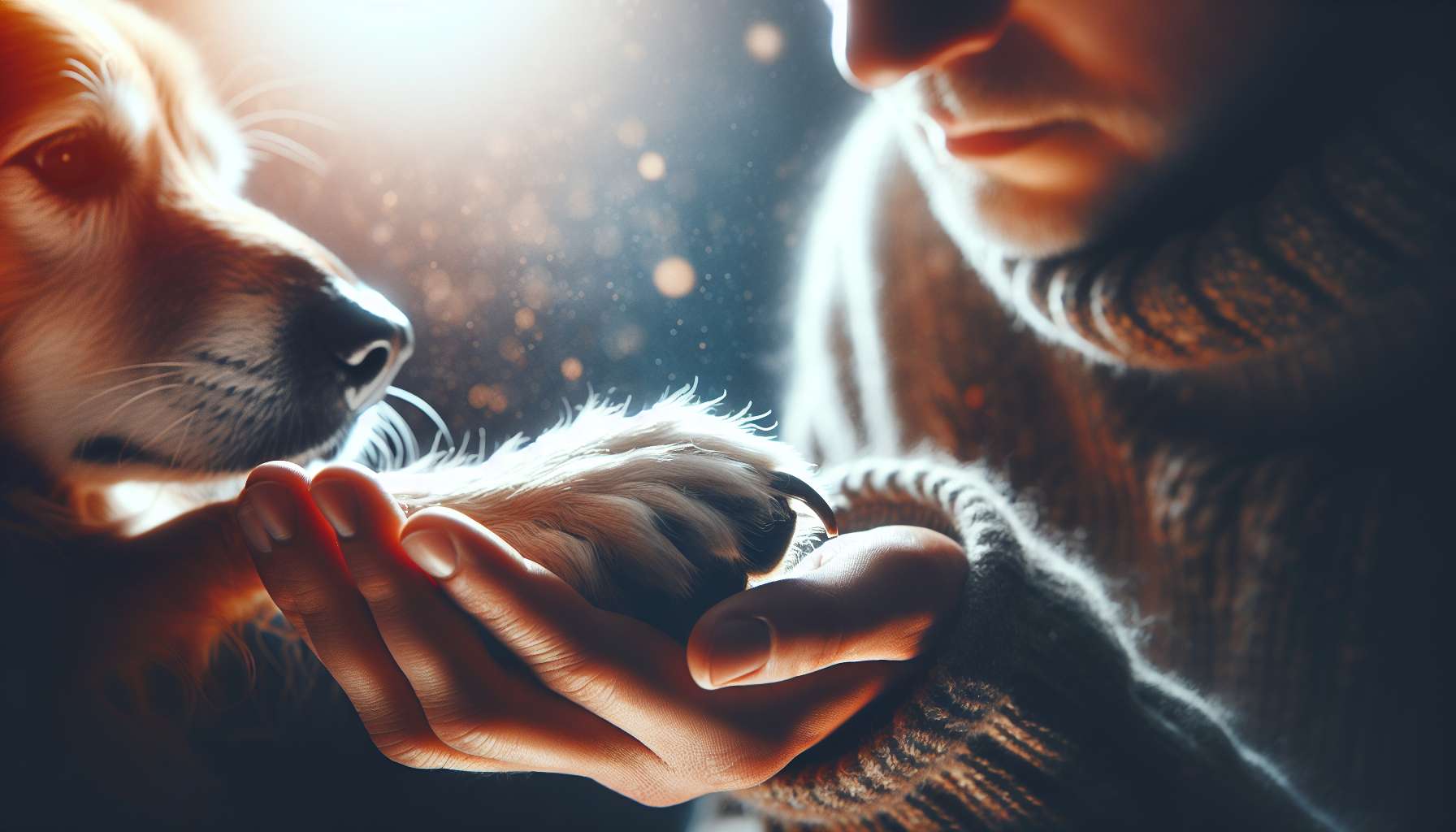The relationship between humans and animals raises numerous ethical and deontological questions, which challenge our responsibility towards these sensitive beings and our way of cohabiting with them. Over the centuries, the status of animals has evolved considerably, transitioning from a mere movable good to a living being possessing sensitivity, officially recognized as such by the Civil Code since 2015. This legal evolution bears witness to a gradual awakening to the intrinsic value of animals and our duty to treat them with respect and kindness.
One of the fundamental ethical principles in the human-animal relationship is that of non-abuse. As every animal is capable of feeling pain and suffering, we have a moral obligation not to inflict cruelty or mistreatment on them. This implies providing for their physiological needs (feeding, watering, veterinary care), as well as respecting their behavioral and emotional needs. Locking an animal in a cramped space, depriving them of social contact or opportunities to express their natural behaviors constitutes a form of abuse, even in the absence of direct physical violence.
Another ethical principle is that of responsibility. By domesticating animals and integrating them into our environment, we have created a dependency link which obliges us to ensure their long-term well-being. This means considering before acquiring a pet, committing to keeping it all its life and offering it decent living conditions. Too many animals are still abandoned or neglected by owners who underestimate the extent of this responsibility. Animal shelters are full of abandoned dogs, cats and NACs—often in pitiful physical and psychological conditions. It is our duty to educate the public about responsible acquisition and to penalize negligence and abandonment behaviors.
Animal protection also involves fighting against illegal trafficking and unlawful harvesting from nature. Each year, millions of wild animals are captured, transported in deplorable conditions, and sold as exotic pets. This illicit trade threatens the survival of species and inflicts great suffering on the captured individuals. As citizens and consumers, we have a responsibility to refuse to feed these trades and to report any suspicious instances to the competent authorities. Adopting a pet from a shelter rather than buying it in a pet store or online is also a strong ethical gesture.
Beyond individual protection, animal ethics also questions our relationship to the species and our impact on ecosystems. Domestication and genetic selection have created pet breeds with sometimes extreme morphological characteristics (hypertypes), to the detriment of their health and well-being. This is the case with Persian cats, for instance, whose crushed faces predispose them to respiratory disorders, or pugs prone to eye and locomotor problems. Prioritizing aesthetics and conformity to a standard over quality of life is ethically questionable. It falls to us to promote breeding criteria that place animal health and well-being at the heart of concerns.
Our relationship with pets also raises questions of social and environmental justice. In a world where millions of humans suffer from hunger and poverty, devoting significant resources to keeping pets may seem futile, even indecent. Without denying the emotional and social importance of these animals, we should question our priorities and the fair distribution of resources globally. Likewise, the environmental impact of our pets is not insignificant, whether in terms of meat consumption, waste production, or pollution related to the accessories and care industry. Here again, it is our responsibility to adapt our practices to make them more sustainable and environmentally friendly.
Finally, ethics in the human-animal relationship involves respect for the uniqueness of each species and each individual. Not all animals are equal in their needs, cognitive abilities, and relationship to humans. It would be absurd and counterproductive to overly anthropomorphize our four-legged companions, risking denying their otherness and exploiting them. A dog is not a child substitute, a cat is not a living stuffed animal. To respect an animal, we should seek to understand its difference, adapt to its specific needs, and value its unique skills. It also means accepting that it has an element of mystery and autonomy, without trying to control it constantly.
For the Grief Coach specializing in animal bereavement, these ethical reflections are essential. They enable him/her to contextualize the relationship that united the grieving person to their departed companion, and to legitimize the intensity of their sorrow. Losing an animal with which someone shared an authentic relationship, based on mutual respect and responsibility, means losing a unique and irreplaceable being. It also means losing a part of one’s identity and values, shaped in contact with this being so close and yet so different at the same time.
By welcoming with empathy and kindness the emotions of the grieving person, the coach will help them honor the memory of their companion and give meaning to this loss. He/she can invite them to reflect on the life lessons that this animal taught them, the graceful moments shared together, the ethical commitments they have elicited. He/she can also encourage them to transform their grief into action, by getting involved in animal protection causes or by adopting a new animal in need.
Because beyond individual suffering, animal bereavement can be an opportunity for a collective awakening to the value of each animal life and our responsibility towards them. By accompanying grieving people with humanity and respect, the Grief Coach contributes to shifting attitudes and building a more just and compassionate society towards all sensitive beings. This is a strong ethical commitment that gives meaning to their mission and aligns it with a process of social and moral progress.
Key Takeaways:
– The human-animal relationship raises important ethical and deontological questions related to our responsibility to these sensitive beings.
– Fundamental ethical principles include non-abuse, respect for physiological and behavioral needs, and long-term responsibility of pet owners.
– Animal protection involves fighting against trafficking, illegal harvesting, and promoting responsible adoption.
– Animal ethics also question our impact on species (genetic selection) and ecosystems, as well as fair resource distribution.
– Respecting an animal involves recognizing its uniqueness, otherness, and autonomy without excessive anthropomorphization.
– For the Grief Coach, these ethical reflections allow contextualizing and legitimizing animal bereavement, honoring the unique relationship between the person and their departed companion.
– Accompanying grieving people with empathy and respect contributes to shifting attitudes towards a more just and compassionate society for all sensitive beings.
👉 To download docx (Editable) file click here : Click here
👉 To download PDF file click here : Click here
👉 To download MP3 file click here : Click here







